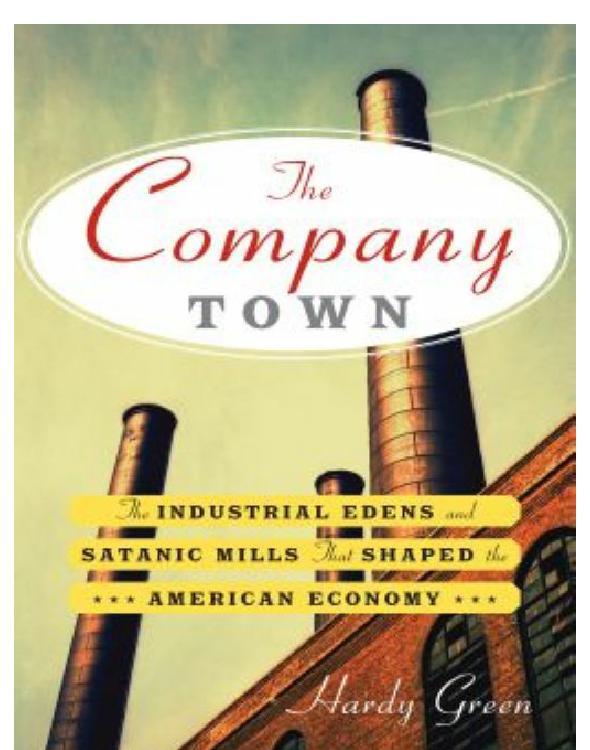The Company Town by Hardy Green

Author:Hardy Green
Language: eng
Format: epub
Publisher: Basic Books
Published: 2010-07-26T16:00:00+00:00
During the 1910s, the steel industry seemed to arrive at a formula for avoiding industrial strife. The corporations were not above coal-industry-like repression, albeit of a less violent nature: Many workers were required to sign “yellow-dog” contracts vowing not to join unions, and suspected violators were discharged and blacklisted. Companies maintained elaborate and efficient departments for spying on employees. But equally important, the steel towns themselves, along with other corporate welfare measures, seemed to reconcile workers to lives of nearly ceaseless, low-paid toil.
Steelworkers likely viewed home ownership or even low rents, as in Sparrows Point or the Carnegie-built dwellings at Munhall, as a pay subsidy. Moreover, the central place of the factories in the towns, and of the guiding and beneficent hand of the plant managers, probably shaped residents’ sensibilities. Company largesse was evident: Over a twelve-year period ending in 1924, U.S. Steel spent more than $22 million on playgrounds, schools, gardens, clubs, and a visiting-nurse program. Town sanitation facilities were another big expense. U.S. Steel funded Boy Scout troops and sports teams, and Bethlehem Steel, a ninety-piece, touring military band. Such efforts built a sense of pride and company loyalty among workers and a positive attitude toward these corporations among the public at large.17
There were other corporate welfare measures, too. In 1903, U.S. Steel began a stock-purchase plan that allowed model employees to buy shares on installment at below-market prices, and more than 26,000 employees immediately took part. Republic Steel, Cambria, and Youngstown Sheet and Tube copied the program. By 1921, Bethlehem Steel workers owned company stock worth $40 million. Under Schwab, that company particularly favored paying monthly bonuses tied to productivity increases—“a cash premium on personal efficacy and endeavor,” in his words. These bonuses went to managers and skilled workers only, however. As in most regards, the semiskilled and particularly the unskilled, who got a flat 37 cents per hour at Bethlehem, were neglected. 18
Skilled workers were also made aware that there were clear avenues for promotion and that they were ever being prepared to ascend the job ladder. The unskilled received little in the way of pay or perks, as most seemed content with what they got. Before World War I, the immigrant ranks included a great many unmarried men who believed they were in the United States only temporarily, just long enough to gather sufficient funds to buy property back in their home countries. They expected to endure a period of harsh sacrifice, doing unpleasant and even dangerous work, and their greatest complaint came when they felt there was not sufficient work to go around.
Perhaps the biggest problem for the steel companies before World War I came from the period’s influential social critics and reformers. The 1909 Pittsburgh Survey, and a series of articles for American Magazine summarizing the survey findings, exposed the industry’s relentlessly long work hours, speed-up, low pay, and repressive attitude that “stifles initiative and destroys healthy citizenship.” The U.S. Senate’s labor committee denounced U.S. Steel’s “brutal system of industrial slavery,” while the
Download
This site does not store any files on its server. We only index and link to content provided by other sites. Please contact the content providers to delete copyright contents if any and email us, we'll remove relevant links or contents immediately.
| Canada | Caribbean & West Indies |
| Central America | Greenland |
| Mexico | Native American |
| South America | United States |
Cat's cradle by Kurt Vonnegut(15359)
Pimp by Iceberg Slim(14508)
4 3 2 1: A Novel by Paul Auster(12393)
Underground: A Human History of the Worlds Beneath Our Feet by Will Hunt(12099)
The Radium Girls by Kate Moore(12030)
Wiseguy by Nicholas Pileggi(5787)
The Fire Next Time by James Baldwin(5447)
Perfect Rhythm by Jae(5404)
American History Stories, Volume III (Yesterday's Classics) by Pratt Mara L(5308)
Paper Towns by Green John(5191)
Pale Blue Dot by Carl Sagan(5010)
A Higher Loyalty: Truth, Lies, and Leadership by James Comey(4964)
The Mayflower and the Pilgrims' New World by Nathaniel Philbrick(4504)
The Doomsday Machine by Daniel Ellsberg(4490)
Killers of the Flower Moon: The Osage Murders and the Birth of the FBI by David Grann(4448)
The Sympathizer by Viet Thanh Nguyen(4393)
Too Much and Not the Mood by Durga Chew-Bose(4348)
The Borden Murders by Sarah Miller(4325)
Sticky Fingers by Joe Hagan(4202)
